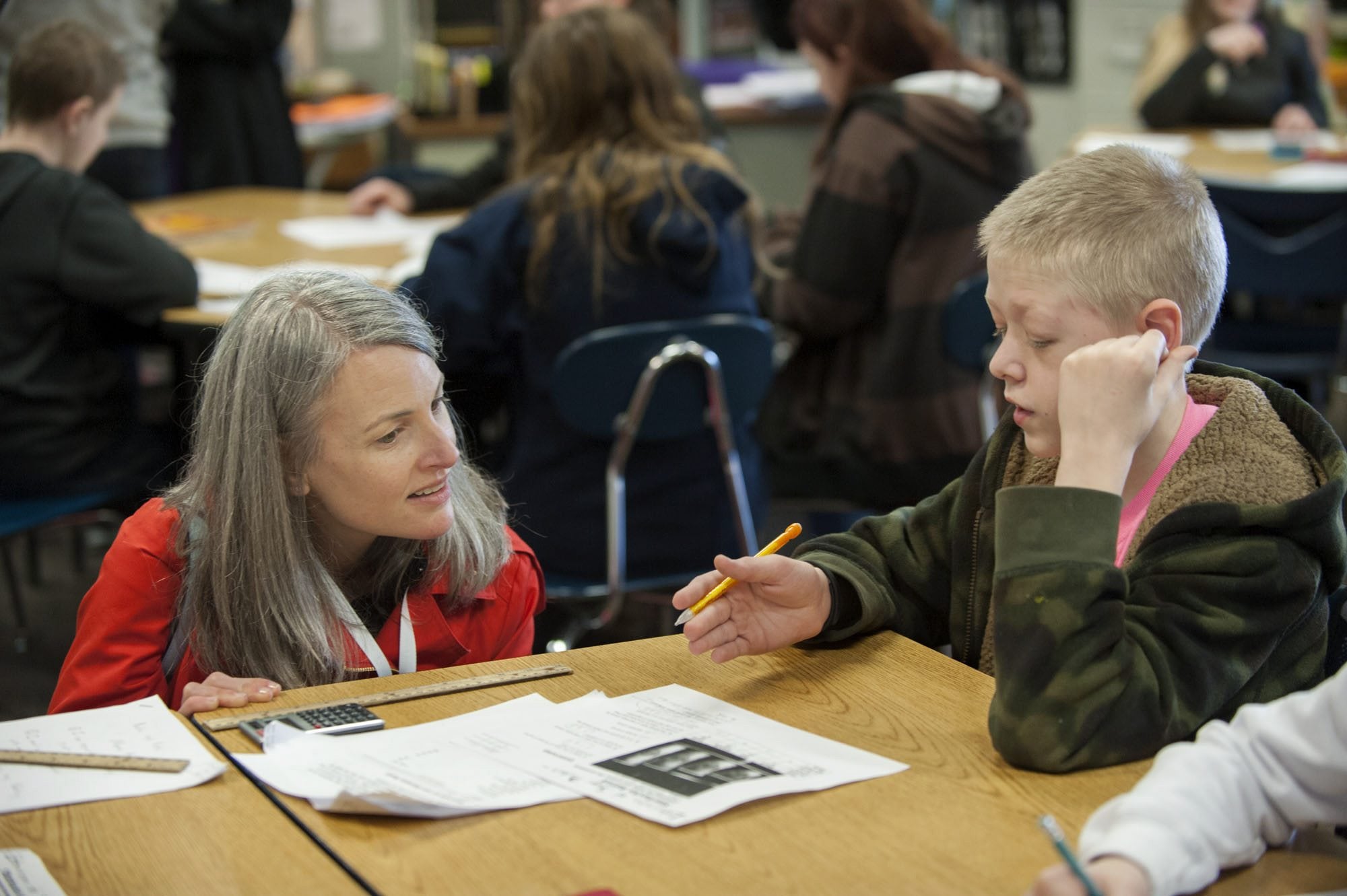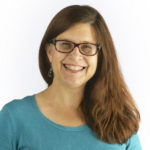Forty education, community and government leaders from around the state stepped off a charter bus at Frontier Middle School on Wednesday morning to see how science, technology, education and math is being used in classrooms.
Vancouver was the first stop of a three-day statewide tour of classrooms organized by Washington STEM, an educational nonprofit. In Clark County, the tour also stopped at the Clark County Skills Center and Hayes Freedom High School in Camas.
In Haley Gibson’s sixth-grade science class at Frontier, students used straws, cardboard, screws and more to design an irrigation system for the school’s raised garden beds. The project’s goal is to create a real-world solution to watering the garden over the long summer vacation “when there’s no one to water,” Gibson said.
Each group was building a model of a prototype. Two other teachers also have students designing an irrigation system. On Friday, students will vote to choose the best system, and students and staff hope to build the actual irrigation system in the spring, Gibson said.
Students Eli Hymas, Ethan Bell and Jeffrey Spring, all 11, were nearly finished building their model designed to be connected to a timer. A screw represented a water spigot and an elaborate configuration of connected straws represented perforated PVC pipe to allow water to flow into the garden. Although both Eli and Ethan said they helped out in their family’s gardens, none of the boys had ever used an irrigation system, let alone designed one.
In Amanda Godsil’s sixth-grade math class, students already had determined how many packets of sugar are in a 20-ounce bottle of cola. On Wednesday, students used calculators to determine ratios of caffeine to sugar in coffee drinks. Godsil noted students’ work in her math class complemented what they were learning in another teacher’s nutrition class.
“We watched a video about how caffeine intake increases blood pressure. It’s a way to combine health with learning how to calculate ratios,” she said.
Then the tour group gathered in the library while Principal Maria Stevens talked about how the school’s staff has made STEM and project-based learning a focus in her four years as principal.
“We’re always asking: ‘How do we make this relevant?'” she said.
Randy Bergstrom, an eighth-grade science teacher at Frontier, created a new STEM elective this year that integrates robotics and allows students to explore the engineering and design process.
Stevens added that with new courses in robotics, game design and cultural cooking and after-school enrichments including the Robotics Green Team and a food class, “kids are seeing a relevance in middle school. Now we’re seeing kids who are more directed toward a career when they start high school.”
But schools can’t do the work alone, said Ted Feller, executive director of Southwest Washington STEM Learning Network. Both he and Stevens noted that grants and training opportunities are available to help schools transition to the new model of hands-on, relevant lessons that solve real-world problems.
The nonprofit Southwest Washington STEM Network is one of 10 networks around the state that works with the state nonprofit and also works regionally to advance STEM education along with local schools, colleges and businesses.
“A principal can’t do it on her own,” said Feller. “It has to be a regional approach. The network is trying to make training in project-based learning region-wide. We talk about a set of competencies kids need to learn, not content. How do we get students engaged in real-world learning?”
After visiting more classrooms, the statewide tour group boarded the bus and headed for Hayes Freedom High School in Camas.
Later this week, they will tour STEM programs in Zillah, the Yakama Nation, Yakima, Cheney and Spokane.




